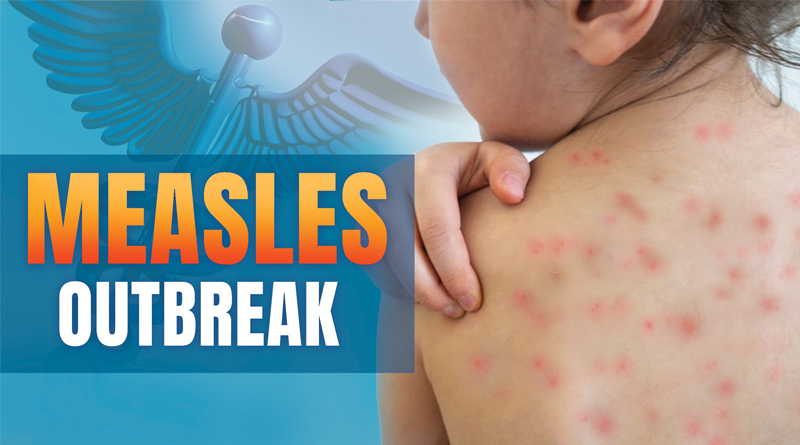Prevention against measles
By: Diana Bello Aristizábal
Measles was declared eliminated from the United States in 2000. However, in February of this year, an outbreak was reported at Manatee Bay Elementary School in Weston, Broward County, which raised alarms about this disease caused by a virus. Despite this, we encourage people to follow basic guidelines such as getting vaccinated instead of giving in to panic.
Even though seven cases were confirmed at that school after the first one was reported on February 16, since then the district has deeply cleaned the school facilities and buses, replaced its air filters and hosted talks on prevention with students’ parents. According to a statement from the Department of Health, 97 percent of students have received at least one dose of the vaccine.
As for Broward County, about 92 percent of kindergarten children have received routine immunizations against measles, chickenpox, polio, and other diseases.
In Florida, the situation is contained as explained by the Department of Health after the outbreak was announced, no more cases have been reported in the state following the incident. In total, there are 10 in Florida, 9 in Broward and the 7 confirmed at the school.
But there are opportunities for improvement, because according to the most recent data released by the Florida Department of Health in 2022, only about a quarter of the state’s counties had met the 95 percent threshold at which communities are considered to be well protected against measles outbreaks.
Overall, the national immunization rate is less than 92 percent. In addition to Florida, measles cases have been reported in 11 other states, including Arizona, Georgia, Minnesota, and Virginia.
It must be said that the emphasis on vaccination has a reason since the majority of people who are not protected by a vaccine will contract measles when exposed to the virus. Additionally, it is estimated that 1 in 5 unvaccinated children who are diagnosed with measles may end up in the hospital.
The importance of getting vaccinated is such that when Florida Surgeon General Joseph Ladapo sent a letter to parents of the Weston school stating they could decide whether or not to send their unvaccinated children to school, he was showered with criticism: Federal Congresswoman Debbie Wasserman Schultz called for his removal from office, while others said his statements went against the prevention guidelines set by the Centers for Disease Control and Prevention, CDC.
In this regard, although several doctors in the state recognized that the final decision of whether or not to send children to school in the midst of an outbreak has to be taken by parents, their children’s vaccination status should be a determining factor since this is a highly contagious disease. The suggestion is not only for their well-being but also to protect classmates, teachers, and other community members.
But for immunization to be 97 percent effective, experts recommend applying the two doses of the vaccine against this disease that manifests itself in flu-like symptoms such as fever, runny nose, cough, and red eyes, plus a rash and small white ulcers inside the mouth called Koplik’s spots.
CDC Recommendations
In order to extend protection to the community and prevent cases like those of Weston’s from happening again, the Centers for Disease Control and Prevention suggests that unvaccinated students stop going to school for a period of three weeks following an exposure to the virus.
Exposure is understood, according to the entity, as sitting in the same cafeteria or classroom as someone who has been infected since measles spreads in small droplets through the air and on surfaces. It’s important to keep in mind that an individual with the disease can transmit it even before showing symptoms.
However, if an unvaccinated person receives an immunization dose within the first three days after exposure to the virus, they are much less likely to get measles or infect others.
The organization recommends getting vaccinated with two doses of the Measles, Mumps, and Rubella (MMR) vaccine, especially if a trip is in the horizon. In the event of an outbreak, health authorities may recommend an early dose for infants between 6 and 11 months who live in or travel to communities within the country where there is ongoing measles transmission.
The vaccine is available for adults at any pharmacy and health insurance usually covers its costs. Those without insurance can visit their county health department and look for free programs. Children can get vaccinated for free under the federal program Vaccines for Children (VFC).

